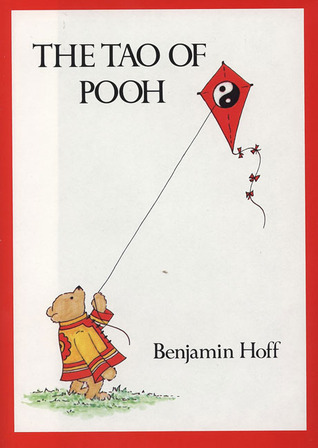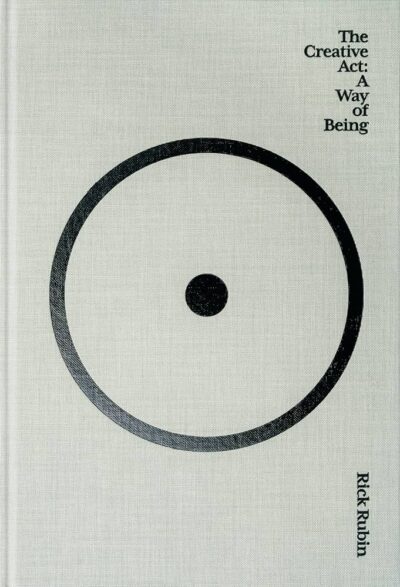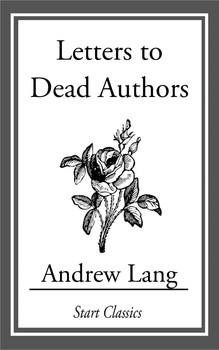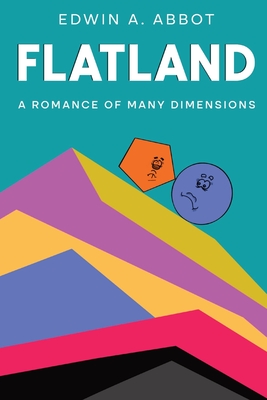182 Results with the "Philosophical" genre
Adventure Fiction (1164)
Biography (435)
Business & Finance (1)
Children's Literature (124)
Comics (6)
Culture (51)
Drama (123)
Dystopian (29)
Fable (86)
Fantasy (1132)
Fantasy (203)
Fiction (1010)
Finance (1)
Gothic Fiction (12)
Historical Fiction (615)
History (122)
Horror (56)
Lifestyle (36)
Literary (404)
Literary Fiction (207)
Memoir (113)
Mystery (422)
Non-fiction (87)
Novel (549)
Paranormal Fiction (96)
Philosophy (45)
Poetry (249)
Political Fiction (14)
Politics (42)
Practical (32)
Psychological (4)
Psychological Thriller (108)
Relationship (6)
Romance Novel (716)
Romantic Melodrama (14)
Satire (91)
Science (46)
Science Fiction (345)
Self-help (68)
Society (65)
Society (2)
Spiritual Growth (1)
story (2)
Thriller (704)
True Crime (56)
view (11)
Women's Fiction (2)
Young Adult (233)
-
Chapter
Chapter 8: That Sort of Bear
 Chapter 8: That Sort of Bear, Hoff tells Pooh about Beethoven's Ninth Symphony, and Pooh excitedly mentions his favorite part, "Sing Ho! For a Bear!" However, Pooh soon realizes that this isn't a part of Beethoven's music but a song he made up himself. This chapter centers on the idea of "enjoying life and being special." In the Pooh books, Rabbit leads Pooh and Piglet on an adventure, assuring them that they both are essential to the success of the journey, even though they doubt their own worth. Rabbit…
Chapter 8: That Sort of Bear, Hoff tells Pooh about Beethoven's Ninth Symphony, and Pooh excitedly mentions his favorite part, "Sing Ho! For a Bear!" However, Pooh soon realizes that this isn't a part of Beethoven's music but a song he made up himself. This chapter centers on the idea of "enjoying life and being special." In the Pooh books, Rabbit leads Pooh and Piglet on an adventure, assuring them that they both are essential to the success of the journey, even though they doubt their own worth. Rabbit…-
68.0 K • Ongoing
-
-
 Chapter III begins by investigating how perception evolves from raw experience into structured thought, revealing a spectrum that moves from the immediacy of sensation to constructed concepts. Henri Bergson does not view experience as static or neatly divided; instead, he explains that what we often call facts are not final, but moments within a continuum. Each moment serves both as a foundation for what follows and as a result of what preceded. This flow creates a layered understanding of reality, where…
Chapter III begins by investigating how perception evolves from raw experience into structured thought, revealing a spectrum that moves from the immediacy of sensation to constructed concepts. Henri Bergson does not view experience as static or neatly divided; instead, he explains that what we often call facts are not final, but moments within a continuum. Each moment serves both as a foundation for what follows and as a result of what preceded. This flow creates a layered understanding of reality, where…-
57.6 K • Ongoing
-
-
 Chapter 25 - La Comedie Francaise a Orange opens in a place where art, history, and landscape fuse into one unforgettable experience. Traveling through sun-drenched valleys and alongside the ancient Rhone, we followed the path of classical revival, our destination not merely a town but a vision—Orange, with its legendary Roman theatre. The performances by La Comedie Francaise, supported by Les Felibres, weren’t just artistic acts; they were a passionate reclaiming of history, echoing the spirit of…
Chapter 25 - La Comedie Francaise a Orange opens in a place where art, history, and landscape fuse into one unforgettable experience. Traveling through sun-drenched valleys and alongside the ancient Rhone, we followed the path of classical revival, our destination not merely a town but a vision—Orange, with its legendary Roman theatre. The performances by La Comedie Francaise, supported by Les Felibres, weren’t just artistic acts; they were a passionate reclaiming of history, echoing the spirit of…-
151.7 K • Ongoing
-
-
Chapter
Everyone Is a Creator
 The chapter "Everyone Is a Creator" challenges the widespread belief that creativity is an exclusive talent granted to a select few, instead presenting it as an innate quality possessed by all humans. Creativity is not confined to the realms of art, music, or literature but is interwoven into the fabric of everyday life. Every decision, from solving problems at work to planning meals at home, involves an element of originality. Even the most mundane activities, such as rearranging furniture for better…
The chapter "Everyone Is a Creator" challenges the widespread belief that creativity is an exclusive talent granted to a select few, instead presenting it as an innate quality possessed by all humans. Creativity is not confined to the realms of art, music, or literature but is interwoven into the fabric of everyday life. Every decision, from solving problems at work to planning meals at home, involves an element of originality. Even the most mundane activities, such as rearranging furniture for better…-
341.4 K • Ongoing
-
-
Chapter
Breaking the Sameness
 In the chapter "Breaking the Sameness," the focus is on overcoming the inevitable creative blocks that arise during the "Craft" phase of any artistic pursuit. The author presents a variety of innovative methods aimed at reigniting enthusiasm and uncovering fresh perspectives on performance. These approaches offer artists unique ways to re-energize their work and push past the walls of stagnation. The suggested strategies include: 1. Start with Small, Manageable Steps: For artists experiencing creative…
In the chapter "Breaking the Sameness," the focus is on overcoming the inevitable creative blocks that arise during the "Craft" phase of any artistic pursuit. The author presents a variety of innovative methods aimed at reigniting enthusiasm and uncovering fresh perspectives on performance. These approaches offer artists unique ways to re-energize their work and push past the walls of stagnation. The suggested strategies include: 1. Start with Small, Manageable Steps: For artists experiencing creative…-
341.4 K • Ongoing
-
-
Chapter
The Energy (In the Work)
 The chapter The Energy (In the Work) delves into the unseen but undeniable force that compels artists and creators to pursue their craft with intensity. It begins by exploring the question of what truly fuels a creator’s dedication, arguing that inspiration is not simply a matter of personal motivation but rather an energy that emerges from the work itself. This energy functions like an invisible current, pulling the creator deeper into their project, influencing their thoughts, emotions, and even their…
The chapter The Energy (In the Work) delves into the unseen but undeniable force that compels artists and creators to pursue their craft with intensity. It begins by exploring the question of what truly fuels a creator’s dedication, arguing that inspiration is not simply a matter of personal motivation but rather an energy that emerges from the work itself. This energy functions like an invisible current, pulling the creator deeper into their project, influencing their thoughts, emotions, and even their…-
341.4 K • Ongoing
-
-
 Letter Epistle to Mr. Alexander Pope sets the tone for a reflection that is at once admiring and interrogative, as the writer examines the complicated aura that surrounds Pope’s poetic legacy. Rather than offer blind praise, the letter moves carefully between Pope’s enduring influence and the thorny criticisms that have shadowed his name. Those who study Pope often do so with divided minds—some celebrate his wit and linguistic precision, while others accuse him of vanity and self-interest. His garden…
Letter Epistle to Mr. Alexander Pope sets the tone for a reflection that is at once admiring and interrogative, as the writer examines the complicated aura that surrounds Pope’s poetic legacy. Rather than offer blind praise, the letter moves carefully between Pope’s enduring influence and the thorny criticisms that have shadowed his name. Those who study Pope often do so with divided minds—some celebrate his wit and linguistic precision, while others accuse him of vanity and self-interest. His garden…-
82.9 K • Ongoing
-
-
Chapter
Chapter 4 — Machine-made Men
 Chapter 4 - Machine-made Men opens with a moment both humorous and frustrating: a personal-looking letter turns out to be nothing more than a printed pitch for suspenders and disposable collars. That small deception sparks a larger reflection on how daily life has been taken over by a flood of inventions, most of them unnecessary. These gadgets, born from a culture addicted to novelty, promise efficiency but deliver only confusion. Instead of simplifying life, they overcomplicate it with moving parts,…
Chapter 4 - Machine-made Men opens with a moment both humorous and frustrating: a personal-looking letter turns out to be nothing more than a printed pitch for suspenders and disposable collars. That small deception sparks a larger reflection on how daily life has been taken over by a flood of inventions, most of them unnecessary. These gadgets, born from a culture addicted to novelty, promise efficiency but deliver only confusion. Instead of simplifying life, they overcomplicate it with moving parts,…-
151.7 K • Ongoing
-
-
 Section 3 explores the social structure of Flatland through both its geometry and strict hierarchy. Buildings in populated areas must follow a legal standard that ensures safety by limiting sharp angles, with pentagonal forms being the lowest acceptable design. This reflects a broader cultural shift, where even architecture mirrors the drive toward symmetry and refinement. Only in remote, undeveloped regions might a square house still be found—an architectural relic seen more as a curiosity than a…
Section 3 explores the social structure of Flatland through both its geometry and strict hierarchy. Buildings in populated areas must follow a legal standard that ensures safety by limiting sharp angles, with pentagonal forms being the lowest acceptable design. This reflects a broader cultural shift, where even architecture mirrors the drive toward symmetry and refinement. Only in remote, undeveloped regions might a square house still be found—an architectural relic seen more as a curiosity than a…-
92.9 K • Ongoing
-
-
Chapter
Look Inward
 The chapter "Look Inward" challenges conventional notions of fulfillment and success by shifting the reader’s focus from external validation to the vast, untapped potential within. It begins with a sensory-rich description of the narrator’s environment—waves gently colliding against the shore, a light breeze rustling the leaves, the distant laughter of children, and the soft murmur of jazz music drifting through the air. Each of these elements contributes to an immersive experience, grounding the…
The chapter "Look Inward" challenges conventional notions of fulfillment and success by shifting the reader’s focus from external validation to the vast, untapped potential within. It begins with a sensory-rich description of the narrator’s environment—waves gently colliding against the shore, a light breeze rustling the leaves, the distant laughter of children, and the soft murmur of jazz music drifting through the air. Each of these elements contributes to an immersive experience, grounding the…-
341.4 K • Ongoing
-
- Previous 1 … 17 18 19 Next
